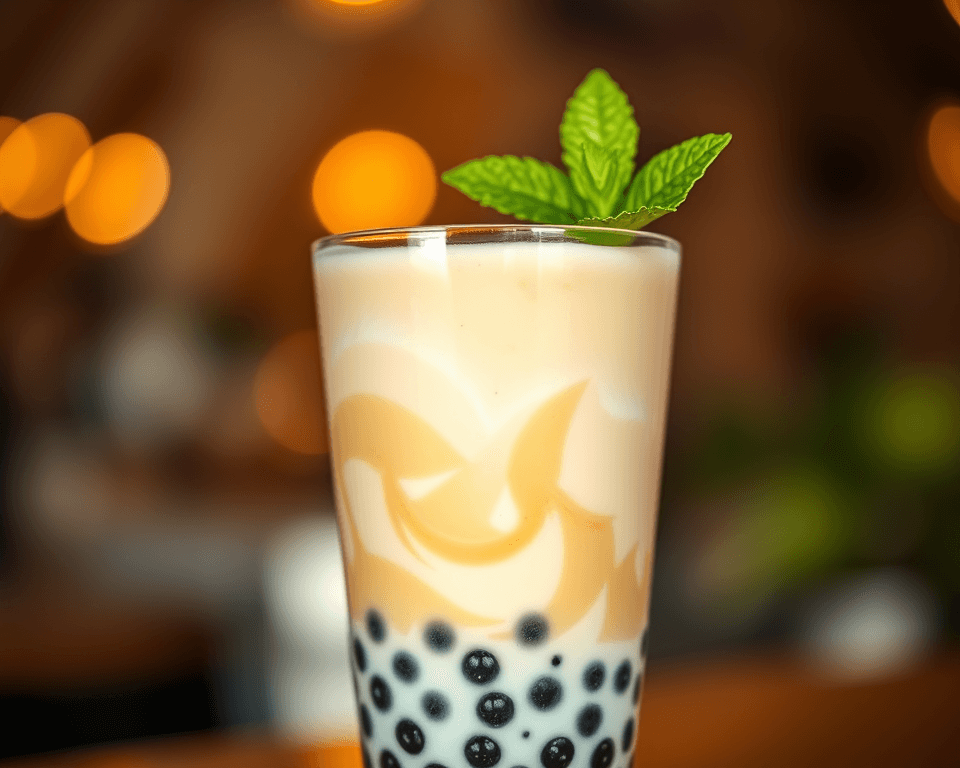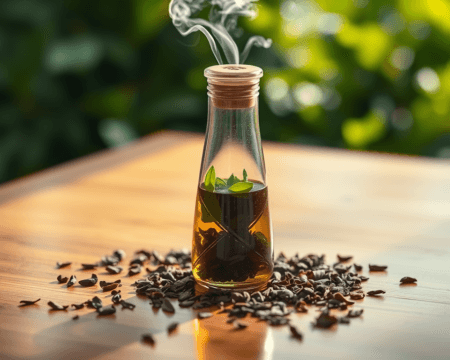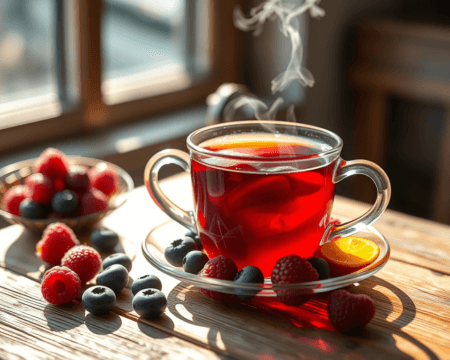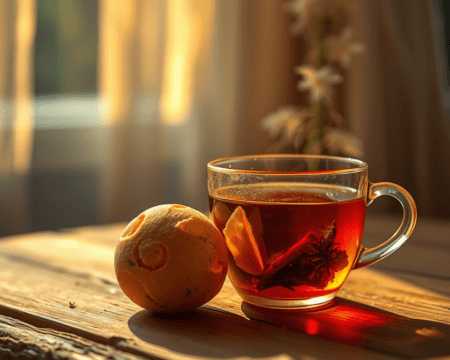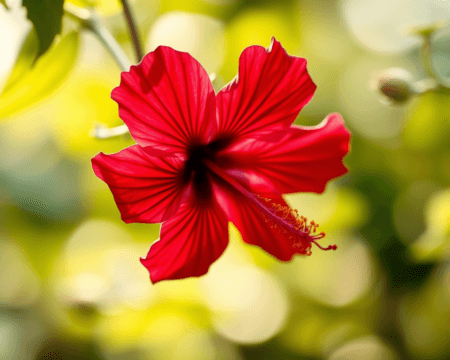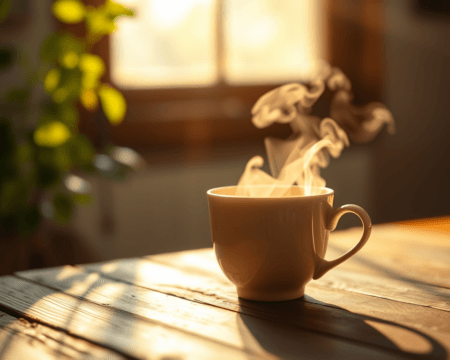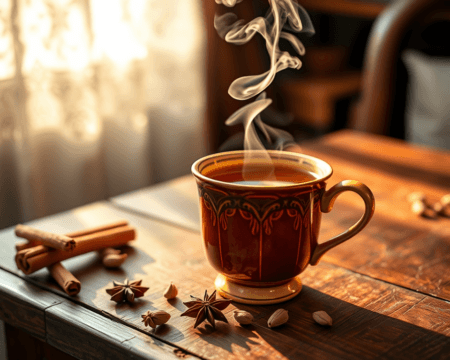Bubble tea. Just saying those two words sparks visions of vibrant colors, chewy tapioca pearls, and that sweet, slurp-worthy goodness that has taken the world by storm. But here’s the million-dollar question: Is bubble tea caffeinated? If you’re anything like me, you want to enjoy your drink without wondering if it’s going to keep you tossing and turning at night. Let’s break down everything you need to know about caffeine in bubble tea, so you can sip your way to your next craving without a worry.
Key Takeaways
- Not all bubble tea contains caffeine; it heavily depends on the tea base used.
- Black tea and green tea varieties typically have a higher caffeine content compared to fruit-based or herbal bubble teas.
- Caffeine levels in bubble tea vary based on ingredients like sweeteners and flavorings.
- Always check with the shop to know what’s in your drink if you’re managing your caffeine intake.
Understanding Caffeine in Bubble Tea
What Ingredients Contribute to Caffeine Levels?
When you think about classic bubble tea, a few primary ingredients come to mind: tea, milk, sweeteners, and, of course, those blissful tapioca pearls. But let’s zoom in on the tea part because that’s where the caffeine action happens.
Tea Types: Most bubble teas start with either green or black tea. Black tea typically has about 40-70 mg of caffeine per 8 oz, while green tea has around 20-45 mg. So, if you’re sipping on a taro milk tea made with black tea, guess what? You’re getting a caffeine kick!
Caffeine Sources: Beyond traditional tea, bubble tea can sometimes be made using matcha or chai, which can also amp up the caffeine. If you’re enjoying a matcha bubble tea, you could be looking at 50-70 mg per serving, depending on how it’s prepared.
Non-Caffeinated Options: Not all bubble teas need to energize you. Some are made using fruit juices or herbal teas, which won’t contain caffeine at all. Think of your fruity bubble tea with no tea involved—just pure, guilt-free flavor!
Here’s a quick breakdown of those vital ingredients that kick up the caffeine levels:
| Type of Tea | Caffeine Content (mg) per 8 oz |
|---|---|
| Black Tea | 40-70 |
| Green Tea | 20-45 |
| Matcha | 50-70 |
| Herbal Tea | 0 |
| Fruit Juices | 0 |
Comparing Caffeine Content in Different Varieties
Now that you know what’s in your bubble tea, let’s compare caffeine levels in different varieties because not all bubble teas are created equal. You might roll up to your favorite bubble tea shop thinking you’re going for a “light and fruity” refresher, but that could land you in caffeine confusion.
Milk-Based Bubble Teas: These often start with black tea or green tea, which means you’re typically looking at caffeine content in that average range. If you choose a robust flavor like chocolate or coffee-infused drinks, you’re upping that caffeine counter. They can be vibrant and energizing, perfect for a midday boost.
Fruit Bubble Teas: These varieties, made primarily with fruit purees or juices, usually don’t have any caffeine. So, if you’re going for a refreshing lychee or mango bubble tea, sip away without worry!
Herbal Teas: If you’re diving into a herbal tea bubble tea, rest assured—there’s no caffeine to restrict your chill vibes. These drinks can be fun, especially if you’re looking to escape the jitters while enjoying the variety and flavor.
You can find caffeine levels in bubble teas anywhere from zero to over 70 mg, so always keep those drink specifics in mind the next time you’re ordering.
How Does Bubble Tea’s Caffeine Compare to Other Beverages?
Caffeine Content in Popular Drinks
Now, let’s stack up bubble tea against some popular beverages out there. Picture this: you’re at a cafe, about to order your go-to drink. Should you reach for bubble tea or your usual coffee?
Here’s a comparison chart to help you decide:
| Beverage | Caffeine Content (mg) per serving |
|---|---|
| Brewed Coffee | 95-200 |
| Espresso | 63 per shot |
| Black Tea | 40-70 |
| Green Tea | 20-45 |
| Soft Drinks | 30-50 |
| Energy Drinks | 80-200 |
| Bubble Tea | 0-70 (depending on tea type) |
You see, bubble tea might land on the lighter side of the caffeine spectrum, especially when compared to coffee or energy drinks. If you’re looking for a late-night treat without the adrenaline rush, bubble tea can be a savvy choice.
Health Implications of Consuming Caffeinated Bubble Tea
Now, here’s where it gets real. Caffeine is a tricky little thing. While most of us can handle it, some folks have a lower tolerance or are watching their intake for health reasons.
Caffeine Effects: Moderate caffeine consumption has been linked to various benefits like increased alertness and improved athletic performance. However, too much can lead to jitters, anxiety, and sleep disturbances. So, if you’re downing its caffeine-laden bubble tea at night, good luck getting to sleep!
Caffeine Consumption Guidelines: The FDA states that up to 400 mg of caffeine a day is generally safe for most adults. Think of it this way: 70 mg from a bubble tea is well under the limit, but add that to a morning coffee, and you might want to keep an eye on your total.
Health Risks vs. Alternatives: If you’re sensitive to caffeine, don’t sweat it. Many shops now offer herbal or fruit-based bubble teas, making your experience enjoyable without overstimulating your system. Plus, there’s a whole world of innovative flavors out there that are caffeine-free.
It all comes down to your body’s tolerance and how well you can manage what you consume. Always keep your personal health needs front and center.
Exploring Variations of Bubble Tea
Caffeinated vs. Non-Caffeinated Bubble Tea Options
While bubble tea can be a cafe favorite, not everyone comes for the buzz. Just like our coffee-loving friends, many of us enjoy those sweet, creative flavors without the jitters.
If you want the flavor but not the caffeine, here’s what you can look out for:
Herbal Bubble Tea: Made entirely from herbal bases, these drinks have a wonderful range of flavors, like chamomile or hibiscus, and pack zero caffeine.
Decaffeinated Tea: Some bubble tea shops offer decaffeinated options! Perfect for enjoying a cozy drink with the rest of the crew without worrying about your caffeine levels.
Next time you find yourself wanting to indulge without a caffeine kick, remember these options!
Cultural Perceptions of Caffeine in Asian Beverages
Bubble tea has its roots deeply planted in Asian culture, bursting onto the Western scene quite explosively in the past couple of decades. And with that, perceptions about caffeine have shaped how we enjoy our drinks.
In many Asian cultures, tea is more than just a beverage; it’s a symbol of social interaction and harmony. The rise of caffeine-infused drinks, including bubble tea, mirrors a growing acceptance of coffee culture. It’s not just about the taste; it’s about the dialogue, the experience, and the connections we make over a brimming cup.
Key Point: Culturally, there’s a mix of attitudes toward caffeine, where it’s seen as both an energizing booster and something to be mindful of.
As bubble tea continues to evolve, the synergy of traditional practices and modern tastes creates a fascinating backdrop. Whether you’re sipping with friends or experiencing a solo bubble tea moment, know that you’re part of a broader cultural wave.
Personal Insights and User Experiences
Anecdotes from Bubble Tea Enthusiasts
I can’t tell you how many times I’ve walked into a bubble tea shop and blissfully chatted with others as we assembled our unique concoctions. It’s a community experience. I’ve seen people excitedly ordering their drinks, whether they’re seeking that post-work pick-me-up or just celebrating a Tuesday.
Friends share their favorites, often highlighting personal experiences. One pal swears by a brown sugar milk tea saying it feels like a warm hug in a cup—with just the right amount of caffeine to keep her energized throughout her chaotic afternoons.
Jamila, another bubble tea enthusiast, found herself curious about how the caffeine in her favorite jasmine green tea bubble tea affected her productivity. She confessed that one bubble tea could spark her creativity for hours, while another would leave her jittery. Valuable lesson? Stick to what works for you—your body speaks.
Interviews with Bubble Tea Shop Owners
I had the pleasure of chatting with a bubble tea shop owner who’s seen her cafe evolve since it opened three years ago. “Our customers are wildly interested in what they’re consuming,” she shared. “It’s not just about sweetness anymore; they want to know if what they’re drinking is caffeinated, where it’s sourced from, and how it’ll affect their day.”
She noted that her most requested drink is her cold brew brown sugar bubble tea, which captures both caffeine-hungry customers and those looking to indulge in something deliciously unique. She said it has become a popular pick around mid-afternoon—a time when most folks crave that pick-me-up without the impending evening crash.
So, don’t just take my word for it. Your favorite bubble tea shop probably has fascinating stories of their own. Get to know them, ask questions, and share your insights!
Creative Visual Content and Data Insights
Infographics Comparing Caffeine Content
Visual details can really make a mix of data pop, especially when you’re weighing caffeine levels. I’m all about visual learning—infographics that break down caffeine content in an engaging way can turn a daunting subject into an easy-to-digest format.
Check out the accompanying infographic next time you’re at your bubble tea shop, and see where your drink falls on the caffeine scale. It’s not just about numbers; it’s about making informed choices while enjoying your tasty treats.
User-Generated Content on Caffeine Experiences
The world of bubble tea is bubbling over with social media influences. Have you ever checked out your local bubble tea shop’s Instagram? That feed is overflowing with vibrant pictures of colorful drinks, customer showcases, and the occasional viral trend—like the infamous cheese tea!
Folks love to share their experience, snapping photos of their drinks with the hashtags #BubbleTeaLove or #CaffeineChronicles. This engagement fuels a community where individuals can learn from each other. If you’re trying to navigate the caffeine world in bubble tea, follow these trends for tips, product recaps, and more!
Whether it’s through direct conversations at your shop or what you see online, keep that community vibe alive, and remember we’re all sippin’ the same delicious drink!
In the world of bubble tea, every sip tells a story, and knowing what’s in your drink transforms that experience into something truly special. So, when you’re ordering your next bubble tea, keep those caffeine levels in mind, and enjoy every delightful sip!
Frequently Asked Questions
Does bubble tea always contain caffeine?
Not all bubble tea contains caffeine. The caffeine content largely depends on the type of tea used as the base. While black and green tea varieties have higher caffeine levels, fruit or herbal teas typically do not contain caffeine.
How can I find out the caffeine content in my bubble tea?
To determine the caffeine content in your bubble tea, it’s best to ask the shop directly. They can provide you with details regarding the specific tea base used and any additional ingredients that might contain caffeine.
What are the health effects of caffeine in bubble tea?
Caffeine can provide a temporary energy boost and increased alertness, but excessive intake may lead to side effects such as anxiety, insomnia, or jitters. Moderation is key, especially for those sensitive to caffeine.
Are there any caffeine-free alternatives for bubble tea?
Yes, if you prefer to avoid caffeine, look for bubble teas made with herbal or fruit-based teas. Many shops offer caffeine-free options, so don’t hesitate to ask!
How does the sweetness of bubble tea affect its caffeine content?
While the sweetness of bubble tea does not directly influence caffeine levels, using sugar, syrups, or flavorings can enhance the overall drink experience. However, sweeteners have no impact on the caffeine from the tea itself.
Can I make my own caffeine-free bubble tea at home?
Absolutely! You can create your own bubble tea by using caffeine-free herbal or fruit teas, milk or non-dairy alternatives, and tapioca pearls. This way, you can control the ingredients and customize the flavor to your liking.
Is bubble tea suitable for children?
Bubble tea can be enjoyed by children, but it’s important to consider the caffeine content and sugar levels in the drink. Opt for caffeine-free options and watch the added sweeteners for a healthier treat.
How is the caffeine content of bubble tea compared to coffee?
Caffeine content in bubble tea varies based on the tea type used, while coffee generally contains more caffeine per serving. An average cup of brewed coffee has about 95 mg of caffeine, compared to around 30-50 mg in a standard serving of bubble tea, depending on the tea base.
Are there any potential allergens in bubble tea?
Yes, bubble tea can contain allergens such as dairy, soy, or nuts, particularly if you choose milk or specific flavorings. Always check the ingredient list and consult with the shop staff if you have any food allergies.




